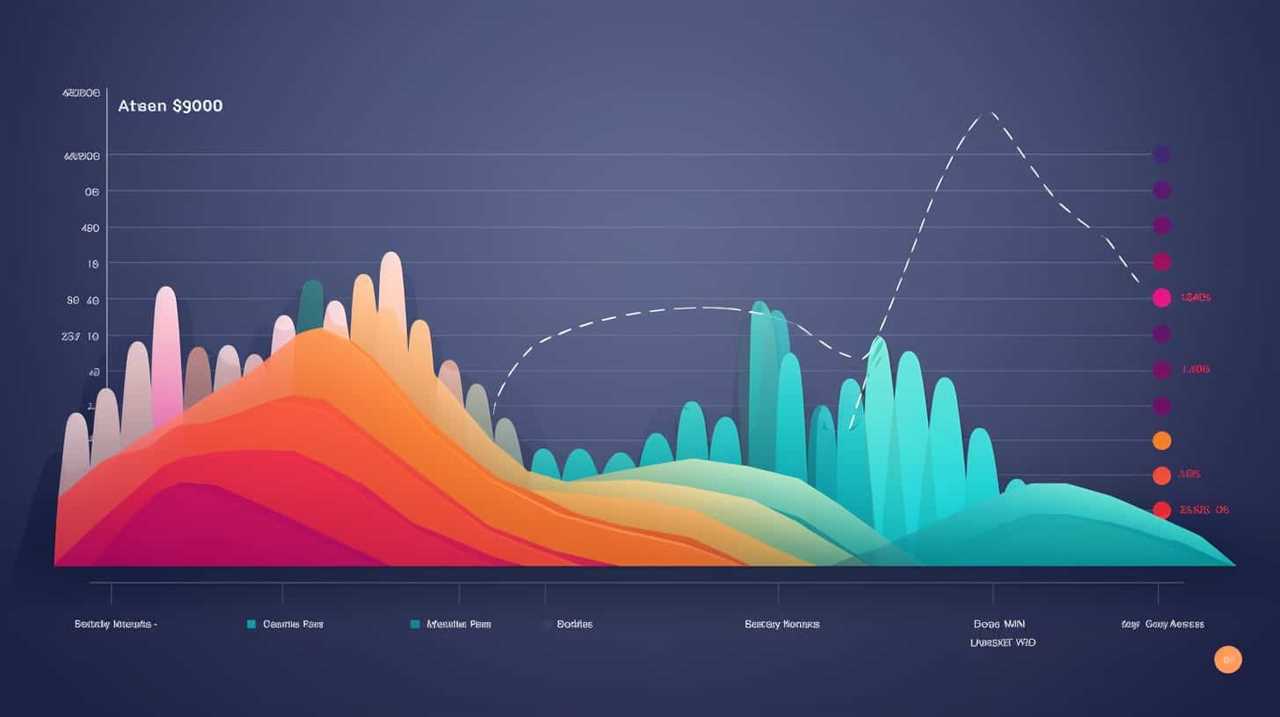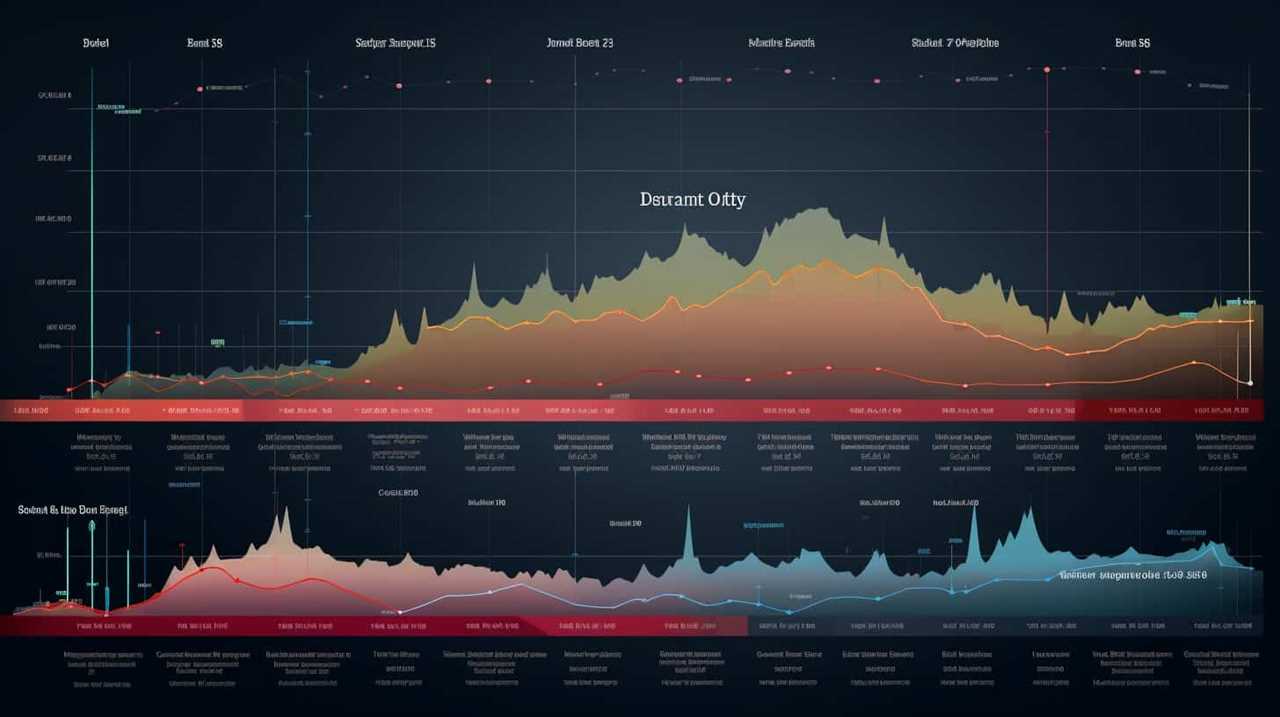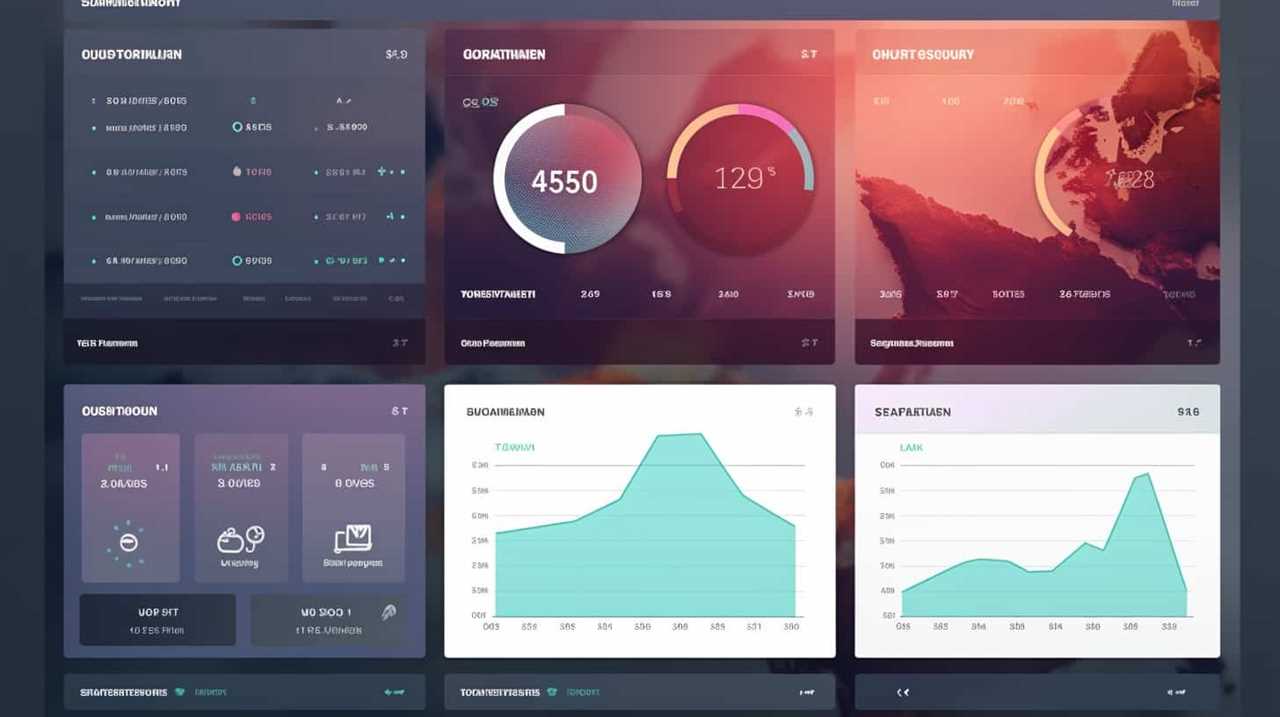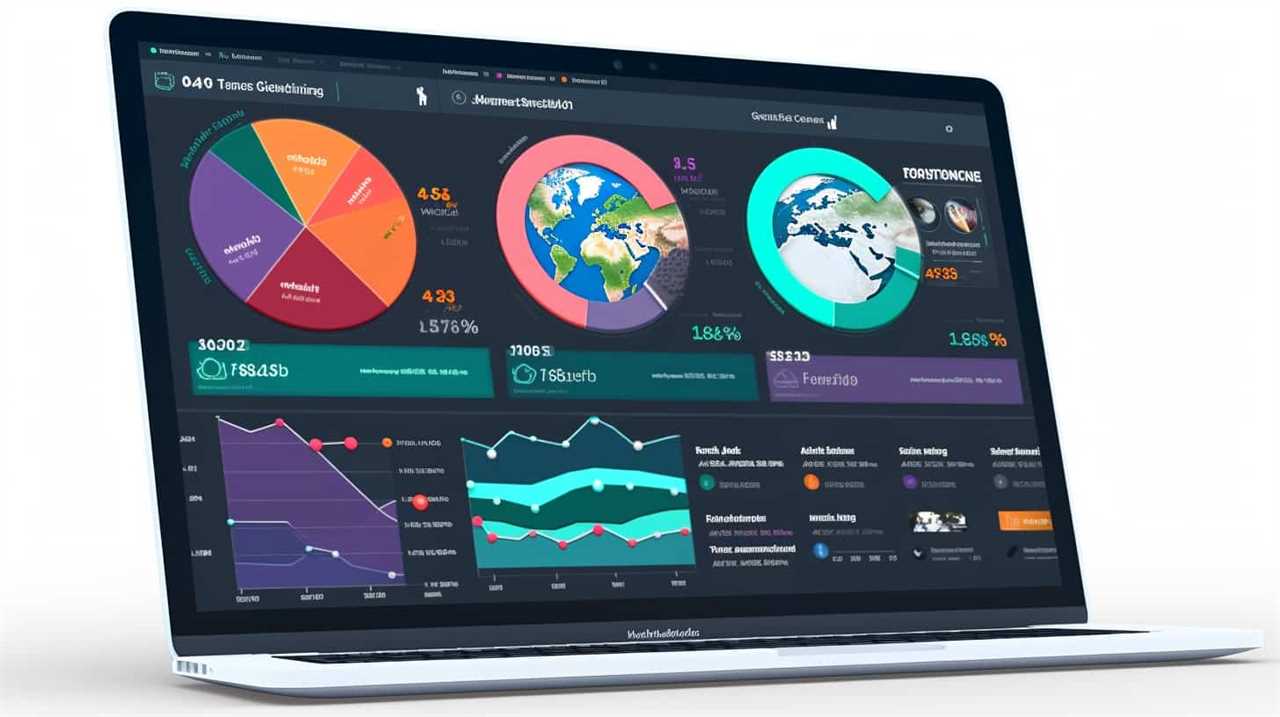Are you ready to enhance your SEO skills? We know that learning advanced SEO tactics can seem overwhelming, but don’t worry!
In this article, we will guide you through the process of mastering advanced SEO step by step. From building a strong foundation to exploring cutting-edge strategies, we will provide you with the knowledge and tools you need to become an SEO expert.
Get ready to unlock the full potential of your website and stay ahead of the game. Let’s dive in!
Key Takeaways
- Building a strong SEO foundation is important, including building backlinks, optimizing meta tags, collaborating with other websites, improving website authority, and increasing click-through rates.
- Mastering keyword research and analysis is crucial for understanding the target audience, conducting competitor research, utilizing advanced keyword research tools, implementing long-tail keyword strategies, and monitoring keyword performance.
- Effective keyword targeting techniques involve using advanced keyword research tools, selecting high volume and low competition keywords, implementing long-tail keyword strategies, and continuously refining and optimizing targeting.
- Improving SEO ranking requires mastering keyword research and analysis, utilizing advanced keyword research tools, implementing long-tail keyword strategies, monitoring and analyzing keyword performance, and leveraging social media platforms for increased visibility.
Building a Strong SEO Foundation
To build a strong SEO foundation, we need to understand the key components and tactics that will help us achieve higher rankings in search engine results.

One important aspect of building a strong foundation is building backlinks. Backlinks are links from external websites that point back to our website. They signal to search engines that our site is reputable and authoritative. To build backlinks, we can reach out to other websites in our industry and ask for guest posting opportunities or collaborate on content.
Another crucial component is optimizing meta tags. Meta tags are HTML tags that provide information about a webpage to search engines. By optimizing meta tags, we can improve our website’s visibility and click-through rates in search engine results. This includes optimizing the title tag, meta description, and header tags.
Mastering Keyword Research and Analysis
When it comes to mastering keyword research and analysis, there are a few effective techniques that we can employ.
By understanding the target audience and their search patterns, we can identify relevant keywords that will improve our SEO ranking.

Additionally, conducting competitor research will give us insight into the keywords they’re targeting, allowing us to optimize our own content accordingly.
Effective Keyword Targeting Techniques
One of the most important steps in mastering keyword research and analysis is understanding the significance of selecting the right keywords for effective targeting. To achieve this, it’s crucial to utilize advanced keyword research tools that provide valuable insights into search volume, competition, and potential traffic.
Additionally, implementing effective long tail keyword strategies can greatly enhance the targeting precision of your content. By focusing on specific, niche keywords that are relevant to your niche, you can attract highly qualified traffic and increase the chances of conversion.
Furthermore, conducting thorough keyword analysis and monitoring the performance of your chosen keywords allows you to refine and optimize your targeting over time. By mastering these techniques, you’ll be able to improve your SEO ranking and drive organic traffic to your website.

Improving SEO Ranking
We can improve our SEO ranking by mastering keyword research and analysis through the utilization of advanced keyword research tools and implementing effective long tail keyword strategies. Keyword research is crucial for understanding what terms and phrases people are using to search for information related to our website. By identifying high volume and low competition keywords, we can optimize our content and increase our chances of ranking higher in search engine results pages. Additionally, it is important to continuously monitor and analyze keyword performance to make necessary adjustments and stay ahead of the competition. Utilizing social media platforms can also play a significant role in improving SEO ranking. Sharing our content on social media channels allows for increased visibility and can drive more organic traffic to our website.
| Pros | Cons |
|---|---|
| Provides insights into user behavior | Time-consuming process |
| Helps identify high-performing keywords | Requires continuous monitoring |
| Allows for optimization of content | Can be complex for beginners |
| Increases chances of ranking higher | Requires investment in advanced tools |
| Drives organic traffic | Requires ongoing analysis and adjustments |
Mastering keyword research and analysis is an essential skill for improving SEO ranking. By utilizing advanced tools and implementing effective long tail keyword strategies, we can optimize our content and increase our chances of ranking higher in search engine results pages. Additionally, leveraging social media platforms can help drive more organic traffic to our website.
Understanding Technical SEO and Website Optimization
When it comes to understanding technical SEO and website optimization, there are two important points to consider: crawlability and indexability, and page load speed.
Ensuring that your website is easily crawlable by search engine bots and that all pages are indexed properly is crucial for effective SEO.

Additionally, optimizing your website for fast page load speed is essential for providing a positive user experience and improving your search rankings.
Crawlability and Indexability
As we delve into the topic of crawlability and indexability, it’s important to understand the technical aspects of SEO and website optimization. Here are three key points to consider:
- Website architecture: The structure and organization of your website play a crucial role in its crawlability and indexability. A well-designed and easily navigable website with clear linking structure allows search engines to efficiently crawl and index your pages.
- Search engine algorithms: Search engines use complex algorithms to determine which pages to crawl and index. Understanding how these algorithms work can help you optimize your website accordingly. Factors such as relevant keywords, quality content, and user experience all contribute to the visibility of your site in search results.
- Optimizing for crawlability and indexability: To ensure your website is easily crawled and indexed by search engines, it’s important to implement techniques such as XML sitemaps, robot.txt files, and canonical tags. These techniques help search engines understand and prioritize your content, ultimately improving your website’s visibility and ranking.
Page Load Speed
Improving page load speed is a crucial aspect of advanced SEO and website optimization. Optimizing images and minimizing CSS are two key strategies to achieve faster loading times.
When it comes to optimizing images, it’s important to resize and compress them without compromising their quality. This can be done by using image editing software or online tools. Additionally, implementing lazy loading, which only loads images when they’re visible on the screen, can further enhance page load speed.

Minimizing CSS involves reducing the file size by removing unnecessary code, consolidating multiple CSS files into a single one, and using CSS minification techniques.
By implementing these techniques, you can significantly improve the performance of your website, leading to better user experience and higher search engine rankings.
Now, let’s delve into the next topic: harnessing the power of on-page SEO.
Harnessing the Power of On-Page SEO
We can maximize the effectiveness of our SEO efforts by harnessing the power of on-page optimization. On-page SEO techniques involve optimizing content for search engines directly on the website. Here are three key strategies to consider:

- Keyword Optimization: Conduct thorough keyword research and strategically incorporate relevant keywords into your website’s content, meta tags, headers, and URLs.
- Content Optimization: Create high-quality, informative, and engaging content that satisfies user intent and aligns with your target keywords.
- Technical Optimization: Ensure your website is crawlable, mobile-friendly, and has a clear site structure that search engines can easily navigate.
By implementing these on-page SEO techniques, we can improve our website’s visibility, relevance, and user experience.
Now, let’s transition into the next section and unleash the potential of off-page SEO.
Unleashing the Potential of Off-Page SEO
To unlock the full potential of off-page SEO, we must leverage external factors to enhance our website’s visibility and authority. Off-page SEO refers to optimizing factors outside of our website that can positively impact its ranking in search engine results pages (SERPs). These factors include backlinks, social media signals, and influencer marketing. By maximizing social media platforms, we can increase brand awareness, drive traffic to our website, and improve our online reputation. Leveraging influencer marketing allows us to tap into the influence and large following of popular individuals in our niche, further enhancing our website’s visibility and credibility. Here is a table summarizing the key strategies for unleashing the potential of off-page SEO:
| Off-Page SEO Strategies |
|---|
| Building High-Quality Backlinks |
| Maximizing Social Media Platforms |
| Leveraging Influencer Marketing |
| Monitoring Online Reputation |
Exploring Advanced Link Building Strategies
Advanced link building strategies involve utilizing innovative techniques to enhance the quality and quantity of backlinks pointing to our website. To truly master these strategies, it’s important to focus on advanced content creation, SEO analytics, and reporting.

Here’s what you need to know:
- Advanced Content Creation: Creating high-quality, valuable content is crucial for attracting authoritative backlinks. Invest time and effort into producing unique and informative articles, blog posts, videos, and infographics that will naturally attract links from other websites.
- SEO Analytics: Utilize advanced SEO analytics tools to track and analyze the performance of your backlinks. This will help you identify which strategies are working and which ones need improvement. Monitor metrics such as referral traffic, domain authority, and anchor text distribution to optimize your link building efforts.
- Reporting: Regularly generate comprehensive reports to measure the impact of your link building strategies. These reports should include key metrics, such as the number of backlinks acquired, the quality of those backlinks, and the overall improvement in search engine rankings.
Optimizing for Mobile and Voice Search
One effective way to enhance our SEO skills is by optimizing for mobile and voice search. With the rise of smartphones and voice assistants, it is crucial to ensure that our websites are mobile-friendly and accessible to voice search users. Mobile first indexing is a significant factor to consider, as it prioritizes mobile versions of websites for search engine rankings. Additionally, optimizing for voice assistants like Siri, Alexa, and Google Assistant can help us reach a wider audience and improve our chances of appearing in voice search results. To illustrate the importance of this optimization, here is a table showcasing the growth of mobile and voice search:
| Year | Mobile Searches (in billions) | Voice Searches (in billions) |
|---|---|---|
| 2016 | 79.35 | 0.35 |
| 2017 | 96.21 | 1.25 |
| 2018 | 116.13 | 2.25 |
| 2019 | 135.65 | 3.25 |
By prioritizing mobile and voice search optimization, we can stay ahead of the curve and ensure our websites are accessible to the growing number of mobile and voice search users.
Now, let’s move on to the next section on staying updated with SEO trends and best practices.

Staying Updated With SEO Trends and Best Practices
We constantly update our SEO knowledge and practices to stay ahead of the ever-evolving trends in the industry. Staying updated with SEO algorithm changes is crucial in maintaining a successful SEO strategy.
Here are three key ways we ensure we’re up to date:
- Regularly monitoring industry news and blogs to stay informed about the latest algorithm updates and trends.
- Participating in industry conferences and webinars to learn from industry experts and gain insights into best practices.
- Conducting regular audits and analysis to measure the effectiveness of our SEO efforts, identify areas for improvement, and make necessary adjustments.
Frequently Asked Questions
How Can I Effectively Track and Measure the Success of My SEO Efforts?
To effectively track and measure the success of our SEO efforts, we utilize trackability and analytics tools. These tools provide detailed insights into website performance, keyword rankings, and user behavior, allowing us to make data-driven decisions and optimize our SEO strategies.
What Are Some Common Mistakes to Avoid When Implementing SEO Strategies?
When implementing SEO strategies, it’s crucial to avoid common mistakes. We need to be diligent in effective tracking and measuring of SEO success to ensure our efforts are paying off.

How Can I Optimize My Website for Local Seo?
To optimize our website for local SEO, we focus on targeting keywords specific to our local business and optimizing our content, meta tags, and URL structure accordingly. Additionally, we prioritize creating high-quality backlinks from local directories and obtaining positive online reviews.
What Are the Best Practices for Optimizing Images and Videos for Seo?
When it comes to optimizing images and videos for SEO, it’s important to remember that they’re like puzzle pieces that complete the online experience. Techniques such as image compression and video sitemaps play a crucial role in enhancing their visibility and ranking.
How Can I Optimize My Website for Voice Search?
To optimize our website for voice search, we need to focus on voice search optimization and voice search ranking. This involves understanding how people speak their queries and tailoring our content accordingly.
Conclusion
In conclusion, mastering advanced SEO techniques is crucial for staying ahead in the digital landscape.

One interesting statistic to note is that websites that appear on the first page of search engine results receive 95% of organic traffic, while those on the second page only receive 5%.
This highlights the importance of implementing effective SEO strategies to improve search engine rankings and drive more organic traffic to your website.
Keeping up with the latest SEO trends and best practices is essential for achieving long-term success in the online world.










